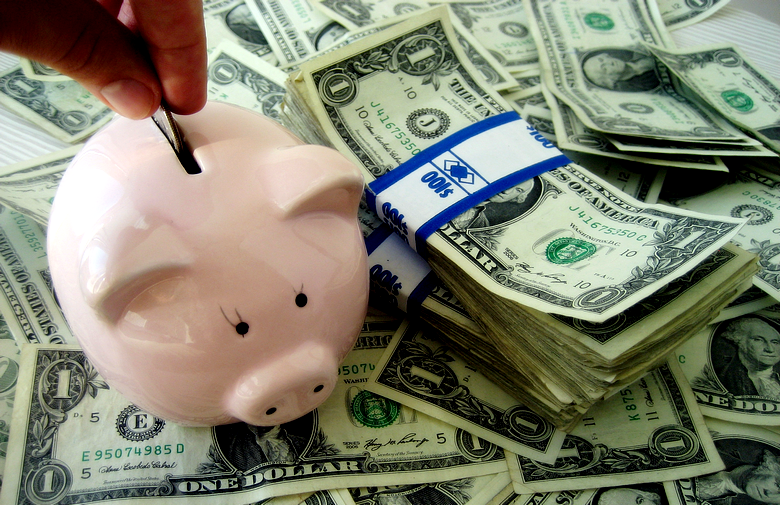
Switch on any business channel and you will find that the word ‘equity’ coming up quite frequently. Now, for someone who has no idea what it means, investing in one can prove to be a dangerous proposition. Among the many misconceptions about equity, the most common has to be that it’s a relatively risk-free investment that generates high returns.
However, the truth is equity has the power to create massive wealth as well as losses. Before we discuss its perks and possible downfalls let’s first concentrate on understanding the fundamentals of equity. Once you break it down, it’s very easy to understand and this basic knowledge would serve as a foundation to all your equity-related investment decisions.
What Is Equity?
Simply put, equity is a unit that defines the percentage of ownership of a particular company. That’s right, when you are investing in equity, what you are actually buying is a tiny piece of a company or in other words shares’. Acquiring shares of a company gives you legal claim over a percentage of company’s profits and assets.
However, investing in equity does not give you the authority to get involved in the day to day operations. Instead, you get a percentage of the company’s profit. Now, if you choose to invest in more equity that would in turn increase your percentage of ownership and entitle you to a higher share of the profit. its equity intelligence.
To give you a clearer picture here’s a hypothetical scenario. Consider a company named Momma’s Bakery. In an effort to raise some money to expand the business Momma’s Bakery releases a total of 1000 shares to the public. Now, if you buy 100 shares of Momma’s Bakery that means you own 10% of the company.
Why Do Companies Issue Shares?
The obvious lingering question in your mind should be, why any company would want to share their profits with the public. Why don’t the owners of the companies keep all the profits for themselves? That’s mainly because individual owners or founders of a company often lack the funds to expand the business. In such situations company’s often have two options. They can either take a bank loan or choose sell parts of the company.
The advantage of selling shares of the company as opposed to taking a loan is quite simple. Money raised by companies by selling their shares doesn’t need to be paid back. On the other hand, if the company takes a bank loan they not only have to pay back the borrowed sum but also pay interest.
Benefits of Being A Share Holder

Now that you understand why a company issues shares to the public, it’s time move on and analyze why you as an investor should buy equity shares. When it comes financial benefits there are two major reasons of investing in equity. Those are dividends and possible appreciation of the share value. you can also do online share trading by opening online trading account. Let’s take a look at them individually.
Dividend:
Being an equity shareholder means you are entitled to get a certain percentage of the profit generated by the company. The percentage of profit depends solely on the number of shares you have. For example, an investor who has 100 shares of a company will get more money than someone who has 10. Now, the profit of a company is usually calculated at the end of each financial quarter.
The share of the profit is given to the shareholders in form of dividends either at the end of each quarter or the fiscal year.
Now, there is no guarantee that a company would pay dividends every quarter or even every year for the matter of fact. The company board of directors can choose to invest the money back into the company instead of paying dividends to the shareholders. The directors review the financial statement at the end of each financial quarter and decide if it’s feasible to pay dividends or not.
Possible Appreciation Of Share Value:
Now the reason we are using the word ‘possible‘ is because the value of the shares bought can appreciate as well as drop depending on how well the company is doing. The value of the shares is directly proportional to the growth and profitability of the company. This means if the net worth of the company increases so does the share value.
For investors who have bought equity shares for a lower cost, the rising value of the shares is always good news. Mainly because they have the opportunity to sell those shares and earn a healthy profit.
Understanding The Risks:

As mentioned before, investing in equity cannot be considered risk free. An equity investment can reward you with generous returns, but it also comes with its share of risks that you should be aware of. There are many factors that can cause the share prices to drop and even lead a company towards total bankruptcy. In these scenarios, investors who are heavily invested in the equity of the company can incur huge losses.
In the 2008 financial crisis, companies such as Freddie Mac, Lehman Brothers, and Fannie Mae filed for bankruptcy causing their respective share values to plummet. These financial meltdowns are often caused by incompetent management, taking financial risks, economic meltdown, and other factors.
No matter what the reason, equity investors who are invested in these companies are also at risk. This is why it’s a good idea to assess the current economic conditions and inner workings of a company before investing in equity.
Tips On Equity Investment:

Following are some of the measures you can take to reduce the risk factor and increase your chances of securing a profit.
Realize Your Financial Goals:
Some people invest in equity hoping that they would get a quick return while others are in for the long run and refrain from selling the stocks in a hurry. The key is to identify your financial need and take steps accordingly.
Educate Yourself:
We cannot stress enough the importance of informing yourself about individual companies and the share market. Do not pay attention to hype. Instead, find out information such as future plans and investors who are invested in the company.
Take Logical Steps:
Value of share prices rise and fall for a number of reasons which does not always reflect a company’s actual health. Don’t base your decision to purchase on a sudden rise or an abrupt fall.
Leave a Reply